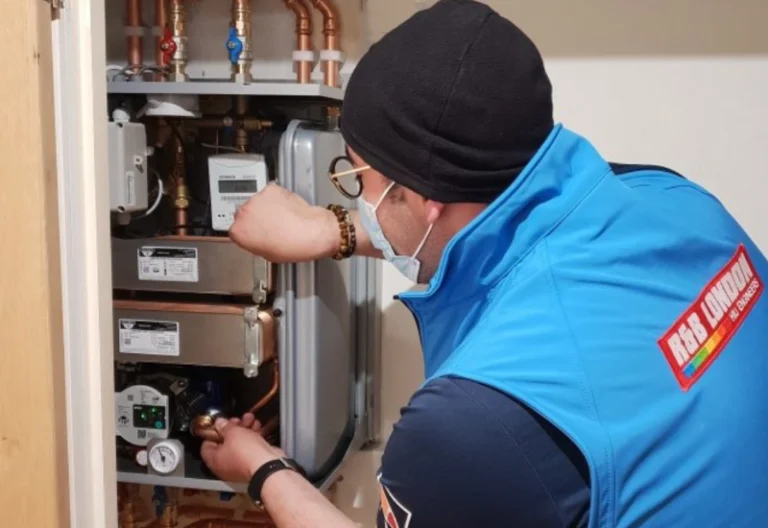The advent of Smart Trucks integrated with IoT technology marks a revolutionary shift in the realm of fleet management. The Internet of Things facilitates a network of interconnected devices that collect crucial data, driving improved operational efficiency. In today’s competitive logistics landscape, the demand for Smart Fleet Solutions that prioritise efficiency, safety, and cost-effectiveness is more significant than ever.
Through the deployment of sensors and connected technologies, Smart Trucks enhance driving performance, streamline maintenance protocols, and optimise resource management. These advancements contribute to remarkable gains in Fleet Efficiency, transforming how companies operate and maintain their fleets.
The Role of IoT in Fleet Management
The advent of IoT in Fleet Management has transformed how businesses monitor and control their fleet operations. Smart Technology integrates various applications, such as vehicle telematics, which allows fleet managers to gain insights into vehicle performance and driver behaviour. This level of monitoring not only enhances compliance with regulatory requirements but also boosts overall efficiency.
Real-time GPS tracking plays a crucial role in optimising route planning. With immediate access to location data, fleet managers can reroute vehicles to avoid delays and reduce fuel consumption. The *impact of effective route management* translates into savings that can be reinvested into the business.
Implementing feedback systems for drivers further reinforces the benefits of IoT in Fleet Management. By offering real-time insights into driving habits, managers can encourage safer driving practices. This proactive approach helps in minimising risks associated with logistics and ensures the safety of both drivers and cargo.
The synergy between data collected through IoT devices and its analytical capabilities drives smarter decisions in Fleet Operations. Managers can use this data to predict maintenance needs, reducing downtime and enhancing operational readiness. Such innovations allow for seamless fleet management, ensuring that every journey is both efficient and compliant.

Smart Trucks: How IoT Improves Fleet Efficiency
The integration of smart technology within fleet management delivers significant advancements in operational capabilities. Through innovative solutions, the transportation industry witnesses groundbreaking changes that redefine what it means to operate efficiently. Leveraging tools such as onboard diagnostics systems, cloud computing, and advanced sensors, vehicles transform into powerful assets, enhancing overall performance and productivity.
The Integration of Smart Technology
Smart Technology Integration transforms traditional trucks into intelligent, connected machines. This integration facilitates the accumulation of real-time data, allowing fleet managers to monitor vehicle performance meticulously. Enhanced visibility into operational metrics ensures that fleet operators can address any issues proactively, minimising potential disruptions. The seamless merging of technology with vehicles not only elevates efficiency but contributes significantly to maintaining optimal service levels.
Real-time Data Insights for Better Decision-Making
Access to real-time data insights profoundly impacts how IoT improves fleet efficiency. Thanks to extensive monitoring capabilities, fleet managers can make informed decisions rapidly, responding to maintenance needs or unplanned route alterations without delay. This capability allows for crucial interventions that enhance overall fleet performance. The agility afforded by real-time data analytics ensures that businesses remain competitive and responsive to dynamic market demands, enabling them to thrive in an ever-evolving landscape.
Innovations in Smart Fleet Management
As the transport and logistics sector evolves, the integration of cutting-edge technologies becomes essential. Innovations in Smart Fleet Management are redefining operational capabilities, enhancing efficiency, and improving customer satisfaction. By leveraging advances in artificial intelligence, machine learning, and big data analytics, companies can gain unprecedented insights into their fleet performance.
Cutting-edge Technologies Driving Change
The adoption of cutting-edge technologies such as AI and machine learning enables fleet managers to analyse vast amounts of data, leading to more informed decision-making. These technologies optimise routes in real-time, predict maintenance needs before they arise, and monitor fuel consumption efficiently. The incorporation of IoT devices further enhances fleet visibility, allowing for proactive management and timely responses to unpredictable situations.
Case Studies of Successful IoT Implementations
Several leading logistics companies have successfully embraced innovations in Smart Fleet Management through IoT technology. For example, a large distribution company reported a 20% reduction in operational costs after implementing a state-of-the-art fleet management system. This transition not only improved their overall efficiency but also significantly enhanced customer satisfaction levels. Another firm showcased a 30% increase in resource utilisation by analysing data trends, demonstrating the real-world impact of embedding cutting-edge technologies into fleet operations.
Truck Telematics Advantages
Truck telematics revolutionises fleet management by providing unparalleled insights into vehicle performance and adherence to safety protocols. The integration of sophisticated technologies allows fleet operators to monitor their vehicles in real-time and gain access to crucial data regarding performance, utilisation, and maintenance needs. This brings forth numerous advantages that can significantly enhance operational efficiency.
Improved Vehicle Monitoring and Diagnostics
One of the primary Truck Telematics Advantages lies in enhanced vehicle monitoring and diagnostics. Fleet managers can access live data concerning engine health, fuel consumption, and driving patterns. This data proves invaluable for maintaining optimal vehicle performance and allows for early detection of potential issues, minimising downtime. Key benefits include:
- Real-time tracking of vehicle location and status.
- Accessibility of comprehensive Vehicle Diagnostics to predict maintenance needs.
- Reduction of repair costs through proactive diagnostics and timely interventions.
Enhancing Safety and Compliance
Another significant aspect of truck telematics is its role in enhancing safety and compliance. By ensuring that drivers adhere to regulations and operational norms, fleets can effectively reduce risks and liabilities. Key features such as driver behaviour monitoring and tailored training programs empower drivers to perform safely on the roads. Important aspects include:
- Automated alerts for speeding, harsh braking, and other unsafe driving behaviours.
- Documentation of compliance with industry regulations and standards.
- Lowered insurance premiums due to improved safety records.
Connected Truck Technology
Connected Truck Technology represents a breakthrough in the logistics and transportation sector. By linking trucks to a robust network, vehicles can communicate seamlessly with each other and surrounding infrastructure. This connectivity enhances overall efficiency and introduces Smart Transport Solutions that significantly improve operations.
Through effective fleet connectivity, communication between drivers and fleet managers becomes more streamlined. Fleet managers can access real-time data about routes, traffic conditions, and vehicle performance, allowing for quick decision-making and better resource allocation. Enhanced navigation systems that come with connected technology further mitigate errors and optimise routes, ensuring timely deliveries.
The potential for remote software updates transforms the maintenance landscape. Fleet operators can implement critical updates without the need for downtime, resulting in uninterrupted service and improved vehicle safety. Overall, Connected Truck Technology reduces reliance on manual interventions and fosters a remarkable responsiveness to ever-changing conditions, solidifying its role as a cornerstone in modern fleet management.
Fleet Efficiency Optimisation with IoT
The integration of IoT into fleet management is transforming the way organisations approach operational efficiency. By harnessing advanced data analytics and predictive maintenance strategies, businesses can significantly enhance performance while focusing on cost reductions.
Data Analytics and Predictive Maintenance
With the power of IoT, data analytics plays a pivotal role in fleet efficiency optimisation. By analysing historical and real-time data, companies can identify patterns that inform maintenance schedules effectively. Predictive maintenance reduces unexpected downtimes, allowing vehicles to run smoothly and remain operational for an extended period. This proactive approach not only enhances vehicle lifespans but also fosters a more efficient fleet overall.
Fuel Efficiency and Cost Reduction Strategies
IoT technologies empower businesses to optimise fuel consumption through precise telemetry data. With this information, organisations can make informed decisions that lead to noticeable cost reductions. Strategies may include monitoring driving behaviours, evaluating engine performance, and scheduling maintenance more efficiently. Such measures not only contribute to lower operational expenses but also support eco-friendly initiatives by reducing carbon footprints.
Enhancing Fleet Productivity with IoT Integration
The integration of IoT technology is a game-changer in enhancing fleet productivity across various industries. By leveraging real-time data and advanced connectivity, companies can fundamentally transform their approach to logistics management. This shift not only streamlines operations but also facilitates Operational Efficiency, enabling businesses to respond swiftly to market demands and customer requirements.
As logistics innovation continues to shape the future of transport, IoT solutions stand at the forefront, offering tools that significantly improve decision-making processes. From predictive maintenance to optimised routing, IoT empowers fleet managers to create a more agile environment. This evolution in fleet management not only boosts internal productivity but also enhances overall customer satisfaction through timely deliveries and better service quality.
Looking ahead, embracing IoT integration as a core strategy holds the potential to drive widespread innovation in the logistics sector. The unwavering commitment to improving fleet productivity will undoubtedly establish a competitive edge for businesses willing to invest in these smart technologies, thereby reshaping the landscape of transportation and logistics for years to come.








